Finding relevant historical information about people of Black/African/Afro-Caribbean descent in Britain is no easy feat. Add Muslim to the mix and it gets even harder. Below are some suggestions of where and what to search for when trying to discover and unravel Black Muslim history in Britain.
Background Reading An understanding of some historical context is important and useful for not only beginning your research but also for further research on Black British history in general. Events, just as much as individuals, can provide a glimpse into the presence of Black Muslims and their lives. For instance, the 1919 riots that broke out in port cities across the UK involved ‘foreign seamen’, including Somalis. Having a context to begin with allows you to use the dates of significant historical events to conduct further research using other historical records.
Below are a few selected books:
Staying Power: The History of Black People in Britain by Peter Fryer
Black 1919: Riots, Racism and Resistance in Imperial Britain by Jacqueline Jenkinson
Untold Histories: Black People in England and Wales during the period of the British slave trade, c.1660-1807 by Kathleen Chater
Black and British: A Forgotten History by David Olusoga
Black Edwardians: Black People in Britain 1901-1914 by Jeffrey Green
For a photographic representation of BAME presence in Britain – Black Britain: A Photographic History by Paul Gilroy.
Community Members
As so often with history, the everyday, ‘normal’ lives of people are often lost. Talking to elders in the community can reveal some interesting stories that would otherwise go undocumented. You also never know what people have in their personal possession, from letters to diaries, photographs to other personal documents that may provide you with a starting point, more information and/or a different perspective.
Institution and Local Archives Archives are intrinsically important as resources. However, cataloguing systems are not always reliable and indexes do not necessarily always relay the information contained in the actual archives. Librarians and archivists may be able to help here. But also think about the search terms you use. Terminology changes over time, as does spelling. You may not find anything when looking for terms such as ‘Black’, ‘African’ or ‘Muslim’ but may find something when searching for ‘Negro’, ‘Mohammedan’ or ‘Mahomedan’. Another thing to bear in mind is who a term encompassed at the time. For example, the term ‘Turk’ became synonymous with anyone Muslim and the term ‘Arab’ included not only Yemenis or anyone from the Middle East and North Africa but also Somalis.
Census, Marriage and other records
Most local history archives have free access to online websites that hold census, birth, marriage and death records that are an important source of information. While, for instance, censuses hold no information regarding ‘race’ or religion, they do provide information on the place of birth of an individual. This, coupled with a name, can be an indication of a person’s ethnicity and faith. However, names do not necessarily affirm a person’s religion and ethnicity alone. For instance in 1764 one John Morgan, originally from Bengal, appeared at the Old Bailey as a witness, having been robbed of various possessions. His name would not have indicated him as a Muslim. However, on closer inspection of the court proceedings you find that he declared himself a ‘Mahometan’ and swore on the Qur’an before giving his testimony to court.
Autobiographies and Memoirs
Autobiographies and memoirs provide details of lives ‘as lived’. They of course can be biased and may have an agenda but they also provide a personal narrative that sometimes capture emotions and significant moments in a person’s life. Two autobiographies of Black Muslims in Britain in the first few decades of the twentieth century include, Dusé Mohamed Ali: The Autobiography of a Pan African and Afro-Asian Activist, and The Life and Adventures of a Somali by Ibrahim Ismaa’il.
Newspapers and Newsreels
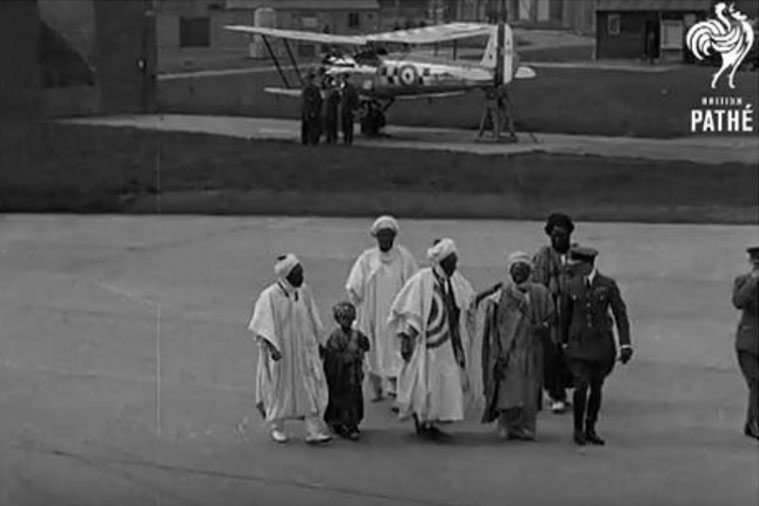
Newspapers contain a lot of information. It is however important to remember that, as always, the media often gravitated and thrive off of sensationalist, xenophobic and racist stories. They may contain attitudes and racist language but they also document the attitudes and atmosphere in which minority communities in Britain lived through at a given moment in time. To get a variant of perspectives don’t limit yourself to mainstream newspapers. Have a look through local area publications and even publications that catered/cater to specific communities. One example is The African Times and Orient Review which ran from 1912 until 1920 and was the first political journal in Britain to be published for and by black people. You can access newspapers free at the British Library and some individual newspaper website now contain digitised copies of past issues online that can be accessed for free or for a small fee. British Pathé and the British Film Institute also have interesting archival footage online. For example, British Pathé have a 1933 film documenting when the Emir of Katsina, along with his sons and grandsons, visited the North Weald Airfield in Essex after deciding to vacation in London after performing hajj.
Other documents and materials
Universities have slowly digitised a lot of PhDs which are now free to access online from university websites. PhDs, while being prime sources of information themselves, often include a plethora of references to primary sources which may help in your research.
Other institutions, such as The Old Bailey (www.oldbaileyonline.org), have digitised material and put them online. The Old Bailey’s websites contains proceedings from 1674-1913, all of which are transcribed for easy consultation but also include images of the original documents.
Given that many Muslims men who passed through UK ports and eventually settled here worked with the Merchant Navy another good source is the Merchant Navy Seamen Records held at the National Archives at Kew. While the contents of the records vary they usually include name, age, place of birth, register ticket, ship names, and dates of voyages. These records cover the years 1835-1941.
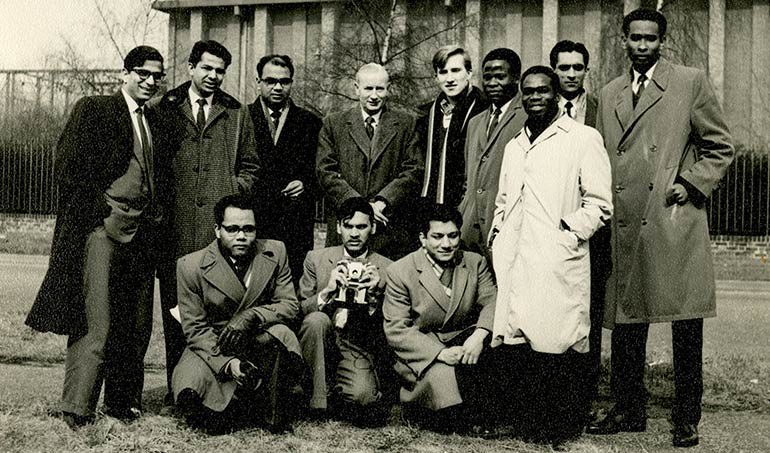
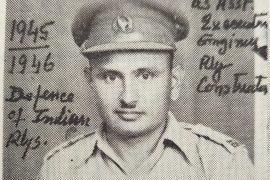
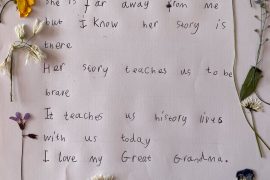
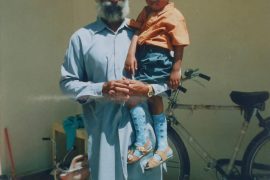
Comments are closed.